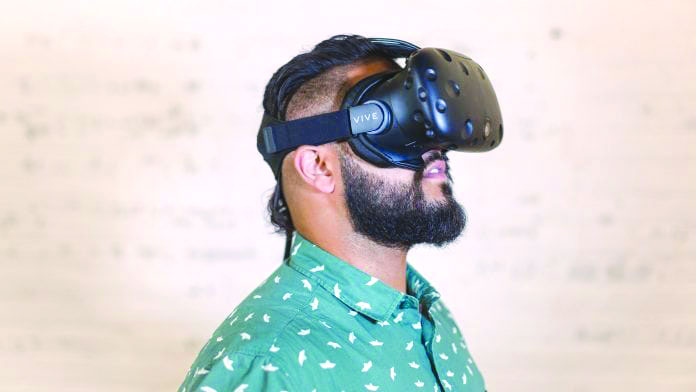Finding a way to predict cybersickness
Scientists have found a way to predict whether a person is likely to suffer from cybersickness — a type of motion sickness caused by using virtual reality technology — which may pave the way for preventing the condition. Researchers at the University of Waterloo in Canada found that they could predict whether an individual will experience by how much they sway in response to a moving visual field. They think that this knowledge will help them to develop counteractions to cybersickness. Cybersickness involves nausea and discomfort that can last for hours after participating in virtual reality (VR) applications, which have become prevalent in gaming, skills training and clinical rehabilitation. “Despite decreased costs and significant benefits offered by VR, a large number of users are unable to use the technology for more than a brief period because it can make them feel sick,” Seamas Weech, a fellow at University of Waterloo.
Blindness and Mediterranean diet
Researchers from the European Union (EU) have found mounting evidence that the Mediterranean diet provides a better and more balanced lifestyle in daily consumption of food varieties that helps prevent potential blindness in later stages of life, said a study released Sunday. The EU scientists expanded their research on previous studies and discovered that a poor diet plays an important role in developing age-related macular degeneration (AMD), a leading cause of blindness in the United States. In analysing the connection between genes and lifestyle on the development of AMD, the researchers found that people who maintain a Mediterranean diet, which features less meat but more fish, vegetables, fruits, legumes, unrefined grains and olive oil, cuts their risk of developing late-stage AMD by 41 per cent.
Selfie deaths on the rise, says study
Social media and smartphones have made selfies the norm for almost every social interaction from eating out to travelling. But while people try sharing moments with the world, some tend to go too far to make theirs look spectacular and this at times can be fatal. A new study has raised concerns with the findings showing that around 43 people have died while taking selfies ever year since 2011. Drowning and falls have been the most common reasons and seven in 10 victims were found to be men. Millennial daredevils accounted for almost half of all the deaths. Scientists recommend no selfie zones, like those established in tourist spots in India, as a possible way to prevent accidents. The study’s lead author said that selfies are not dangerous but the human behaviour that comes with them is. Several incidents of young people getting electrocuted, drowning or falling down from heights while trying to click selfies have been reported in the past few years.


























